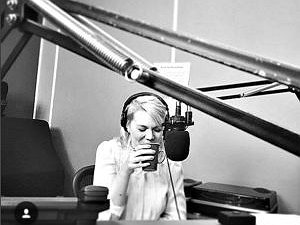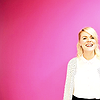Part 2
Can you take me through your process on the basis of a piece/show that's particularly dear to you? How did you decide what to report, what did you start with, what sources did you draw from for research purposes and how did the piece gradually take shape?
My first long-form investigative feature for TGA magazine was a real shifting point for me as a writer. No longer was I sheepishly forming a few witty one liners on a recent release or ropey live performance. Instead, I was propelled into a world of report statistics and grappling with numerous sources for quotes to build out arguments and assertions. The article focused on the rise of Scandinavian artists circa 2014 and the reasons for the rising sound across the mainstream music charts. I spent some time choosing a number of indie artists from a range of the countries in question; Oslo’s Making Marks, Sweden’s award-winning visual artist and songwriter, Jenny Wilson, as well as some grounding facts from trend reports and the Nordic Arts Council.
Obviously, the questions posed were built around an overall story arc and issues I was hoping to explore but it was only after gathering all of these transcripts and resources that I began to map out the piece - literally with coloured pens - across my dining table to bring it all together. It was then a case of fleshing out those various pods of thought using the relevant quotes and comments. It’s only after I see the full first-draft form in front of me that I allow myself to go in and pepper this with the pop-culture references and pun-based title. I Want Scandi was published in Issue 2 of TGA magazine back in 2015.
Could you take us through a day in your life, from a possible morning routine through to your work? Do you have a fixed schedule? How do music and other aspects of your life feed back into each other - do you separate them or instead try to make them blend seamlessly?
It will be no surprise to people who know me reading this that yes, I do need a sense of routine working freelance from home and no, I don’t sit in my Calvin Kleins all day. Towards the end of last year, my partner and I moved out to the seaside on the Kent Coast so my working day is no longer bookended by a painful commute across the city. More recently, I’ve been using this extra time to actually make a dent in my library book reading list as I’m keen to constantly be taking in and appreciating writing works from other inspiring authors (recent reads from Reni-Eddo Lodge, Roxane Gay and Zadie Smith have all been favourites).
I’ll sit down at my desk with a cuppa and the cat from about 8am and work through my emails and any pitches that either need following up or formulating (I have a comprehensive pitch log that I update regularly with pre-determined check in dates so I do actually chase the Editor as I’ve found sometimes things can get commissioned on the back of a third and final follow up when you thought all hope was lost!) Normally, if I’m speaking with an artist on the phone I’ll try to arrange that for the morning dependent on the timezone so I then have the day ahead of me to set to work on the transcription. I may also have another deadline that’s approaching faster so I may need to box out some of time to focus on that instead.
I’m really making an effort to step away from my desk at lunchtime to up that step count so a daily drop off of completed library books via the seafront is helping with that, or I might try and sneak in a little episode to completely distract myself from the screen for a bit. I’ve worked through all 8 seasons of Sex and The City numerous times, I’ll be honest. Afternoons will then be full on feature-writing or may involve some sort of client copywriting task.
Obviously, this idyll is drastically different if I have a live show to cover in London as I will often head into the city earlier in the day and schedule client or Editor catch-ups that day to make the most of my time there. Equally, I always use the opportunity of bagging tickets to see a band as access to that artist so, where possible, will try for interview time on the day of the show if I can or gathering audio content for an upcoming radio show. This Thursday’s Other Woman show actually features BBC Introducing faves, Adwaith in the studio as they happen to be headlining in Islington the very same evening. A lot of my job is literally planning two or three months ahead (which is often the case for print schedules but also helps with advance train bookings!)
It definitely feels as though, since going freelance, more and more of the projects and things I tend to work on are aligned; seeing a live show can become a print feature which might also make it into The Other Woman playlist for the month. It sounds very seamless but really, it’s just fantastically serendipitous and spurred on my general cheery disposition when I email people ideas!
There are many descriptions of the ideal state of mind for being creative. What is it like for you? What supports this ideal state of mind and what are distractions? Are there strategies to enter into this state more easily?
As you probably got from the above exacting, I work best with one focus in mind, so if I need to write an article for a deadline, then that’s my priority for the next proportioned amount of time and I’ll close all other tabs so there are no distractions and leave my phone in another room. I don’t like complete silence so if I’m not listening to the artist in question, I might have the radio on in the background and I’ll definitely need a strong cuppa to hand. My week normally begins with client work and the latter half becomes my sacred few days of freelance focused feature writing. There’s definitely something liberating about having met my other deadlines to then be able to throw my whole attention to the article in front of me. If I’m really struggling, I'll allow myself some reading time on online sites like Pitchfork or The Line of Best Fit to gather inspiration for formats and transitions.
How is listening to the actual music and writing or reading about it connected? What do you achieve and draw from each experience personally?
If I’m reviewing a band’s live show, I’ll definitely listen back to their EPs online whilst writing it up, not least because for ages at festivals I would literally pen the opening bars of the vocal line so I could later name check the track (way before anyone introduced me to the marvel that is setlist.fm). Equally, for a long-form article, I might want to reference an artist’s discography so I’ll dip back into their archive tracks on Spotify. For album reviews, I’ll treat that slightly differently spending more time in the car, on my headphones, to really immerse myself in a record and make small notes and ideas on my phone to formulate the full-thing at a later stage. I really love the challenge of trying to articulate the clean sound of a Telecaster’s summery jangle or a singer’s guttural cry over a heaving backline to kick-start the reader’s experience and exploration of a new artist.
There has been an exponential growth in promotion agencies. What's your perspective on the promo system? In how far is it influencing your choice of artists and topics, in how far is it useful for pre-selection, in how far do you feel it is possibly undermining journalistic freedom?
I definitely have some really strong relationships with PRs who I’ve worked with since my humble beginnings back in the TGA days, who know the types of artists I’m likely to cover and send me sneak peeks of new records hoping we can collaborate, but it’s hugely dependent on the timing, the publication’s other editorial content and my availability. For me, it’s a helpful relationship as it allows me to have the foresight of upcoming releases and plan access to certain artists if they’re heading overseas for a UK tour but I also source my own hooks and angles from release anniversaries and trend-led pieces alongside the press driven stuff.
Art can be a purpose in its own right, but it can also directly feed back into everyday life, take on a social and political role and lead to more engagement. Can you describe your approach to art?
Art in some form or another has shaped my life since I was about 11-years-old. Whether that’s letting out my frustrations with gender stereotyping in my Foundation level art school exhibition to heading into my first guitar lesson with Mr Cooper aged 12 Origin of Symmetry tab in tow, art is a constant for my inspiration, my drive, and daily focus.
It is remarkable, in a way, that we have arrived in the 21st century with the basic concept of music journalism still intact. Do you have a vision of journalism, an idea of what it could be beyond its current form?
Much like the debate of print vs online, there’s still a lot to be said for long-form reads particularly online so I’d love to see more in-depth profile pieces with artists and the room for a writer to really flex and explore a theme or idea much like a thesis. I’m not sure how long the review will serve a purpose with the way we consume and discover new music and artists dropping records on a whim overnight. Similarly, with live festivals, I wonder if there will be a far greater focus on capturing video content with an artist over 4,000 dense rambling words about a writer’s weekend in a soggy field.
Sleater Kinney, The Woods. An outstanding feat of production and songwriting and a firm number one in my all-time favourite bands list. The interplay between Carrie Brownstein’s skronking guitars, Corin Tucker’s caterwaul and Janet Weiss’ command of the drums is totally mesmerising. You know what they say about trees falling in forests? In The Woods you hear it all turned up to 11.
Sarah Waters, Fingersmith. I toyed between Donna Tartt and Waters, both of whom I love for their dark and twisted tales of class, courage and catastrophe. This book is set in Victorian-era London (classic Waters) and traces the street-smart steps of Sue, a petty-thief lured to pose as a chambermaid of a wealthy mistress only to discover something that will turn her world upside down.






